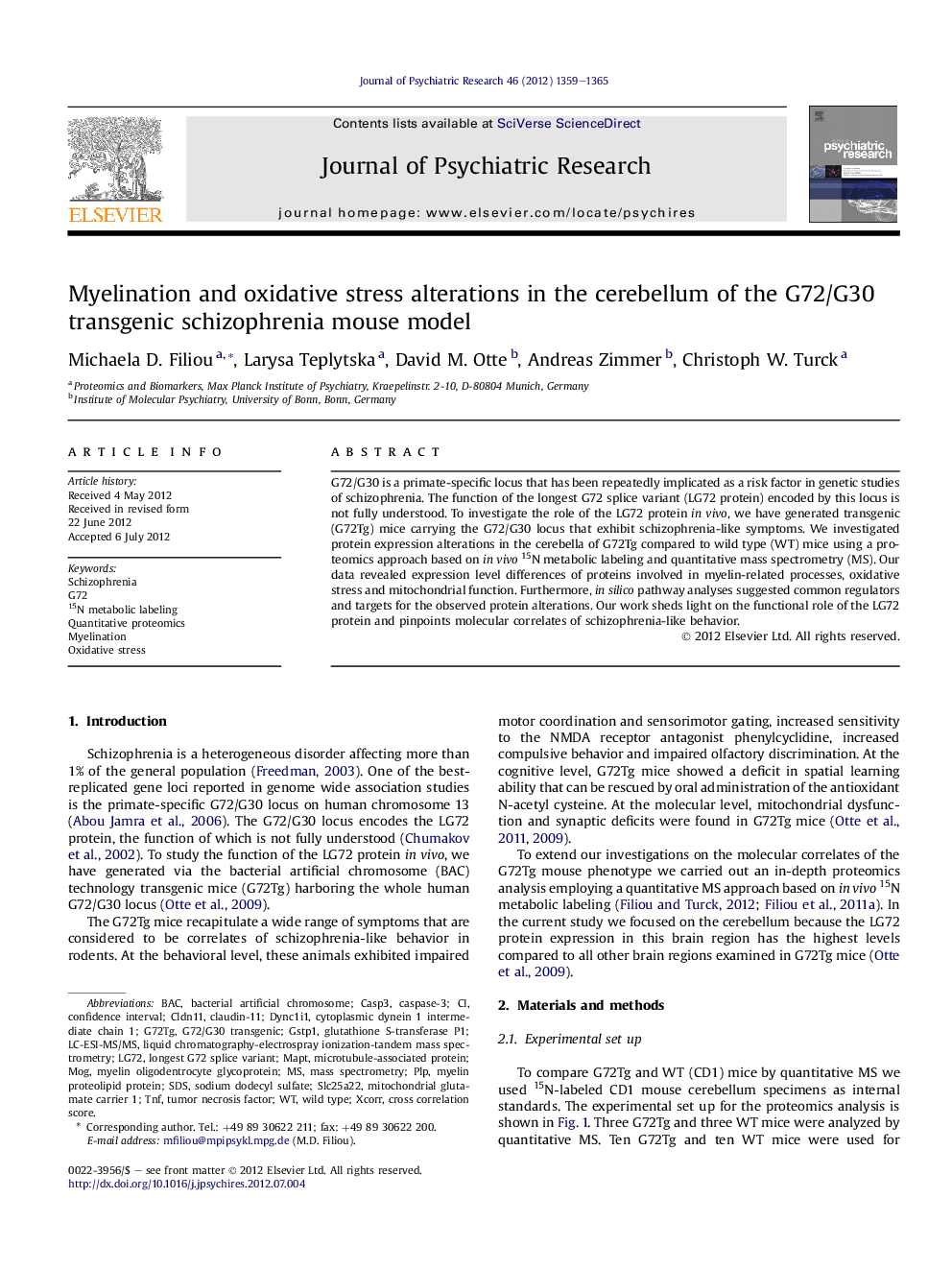| Article ID | Journal | Published Year | Pages | File Type |
|---|---|---|---|---|
| 10302299 | Journal of Psychiatric Research | 2012 | 7 Pages |
Abstract
G72/G30 is a primate-specific locus that has been repeatedly implicated as a risk factor in genetic studies of schizophrenia. The function of the longest G72 splice variant (LG72 protein) encoded by this locus is not fully understood. To investigate the role of the LG72 protein in vivo, we have generated transgenic (G72Tg) mice carrying the G72/G30 locus that exhibit schizophrenia-like symptoms. We investigated protein expression alterations in the cerebella of G72Tg compared to wild type (WT) mice using a proteomics approach based on in vivo15N metabolic labeling and quantitative mass spectrometry (MS). Our data revealed expression level differences of proteins involved in myelin-related processes, oxidative stress and mitochondrial function. Furthermore, in silico pathway analyses suggested common regulators and targets for the observed protein alterations. Our work sheds light on the functional role of the LG72 protein and pinpoints molecular correlates of schizophrenia-like behavior.
Keywords
TNFG72SDSMOGGSTP1CASP315N metabolic labelingPLPMAPTBACLC-ESI-MS/MSSchizophreniaOxidative stresssodium dodecyl sulfateMass spectrometryconfidence intervaltumor necrosis factorMyelinationwild typeQuantitative proteomicsmicrotubule-associated proteinMyelin proteolipid proteinCaspase-3Liquid chromatography-electrospray ionization-tandem mass spectrometrybacterial artificial chromosomeClaudin-11Glutathione S-transferase P1
Related Topics
Life Sciences
Neuroscience
Biological Psychiatry
Authors
Michaela D. Filiou, Larysa Teplytska, David M. Otte, Andreas Zimmer, Christoph W. Turck,
